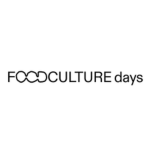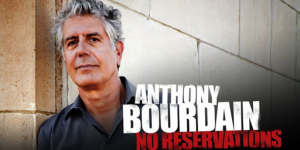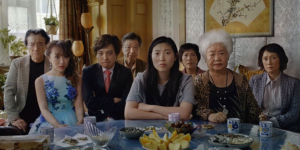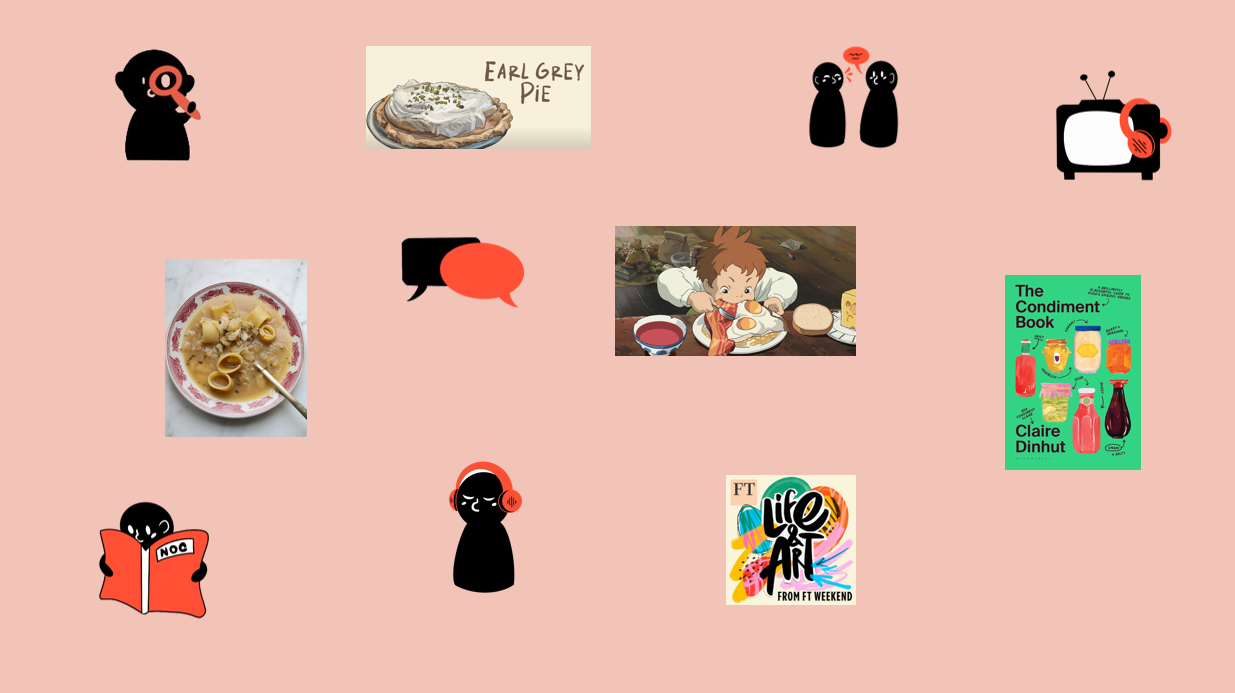|
Food has always been deeply connected with my family history. Beyond the food obsession that is to be expected from someone who is Italian-French, I come from a multigenerational line of cooks—on both my maternal and paternal side. And for each generation, food wasn’t just about sustenance; it was a vehicle for something else.
For my great-grandparents, it was survival. My great-grandfather lived on potato peels for weeks after escaping a concentration camp, while my great-grandmother smuggled rice and sugar across the Swiss border during WWII. For my grandparents, cooking became a social opportunity—a way to connect, build a community, and carve out a livelihood. And then came my parents, who broke the cycle after years of serving tables and, ironically, peeling potatoes during school breaks.
So when I developed my own passion for cooking—along with my strong passion for potatoes—I began to wonder: was this just a personal interest, or was I tapping into something deeper?
Food has always been about more than nourishment. Every bite carries histories, migrations, and transformations within it. Ingredients move across borders, recipes shift through generations, and production systems reveal the tensions between tradition and change. Whether passed down through family kitchens, reshaped by necessity, or reclaimed through creativity, food is part of how we make sense of the world and our place within it.
That hasn’t changed, even in the age of social media. We’ve been riding the foodie era for quite some time now. Recipes once scribbled in notebooks became TV shows, then blog posts, and now algorithm-driven trends that flood our feeds (and now you have apps that brings them all together). So at its core, the impulse remains the same: to document, to preserve, to pass down. Even in an age of viral cooking hacks and aesthetic food plating, we’re still seeking connection—whether to our past, our culture, or simply each other.
In my family, food was never just about eating—it was survival, community, and reinvention. And in many ways, it still is. No matter how much the world changes, we keep coming back to the table, not just for nourishment, but for a sense of belonging. And what about your food stories? What role food played in your life?
Estelle
PS. This edition only scratches the surface. Food is too vast, too layered to tackle all at once—its implications stretch across production systems, climate impact, social inequalities, and beyond. But if you’re here—whether subscribed or just about to be—know that there’s more coming your way!
|
Some numbers
|
+2.398 mil meals
|
Meals served in Refettorio spaces worldwide, an initiative by Food for Soul, founded by Massimo Bottura and Lara Gilmore, creating welcoming dining experiences that bring people together around the table.
|
|
800,000 years
|
Archeological evidence showed that humans have been sharing meals for hundreds of thousands years, making communal eating one of the most universal human practices.
|
|
70%
|
Over 70% of Gen Z enjoy discovering food content on social media platforms and about 84% have tried at least one food trend in the last year.
|
|
Read between the lines
Food is never just about eating—it holds memory, shapes identity, and reflects the world around us. These articles explore the ways we connect to our past, our culture, and each other through what’s on our plates.
|

|
Why humans feel the need to feast together - Veronique Greenwood (2024)
What drives this universal need to come together over food? From ancient rituals to modern gatherings, communal feasting has been a constant across cultures.
|
|
|
The Life Story of a Recipe – Gina Rae La Cerva (2021)
Recipes don’t just tell us how to cook—they trace histories, migrations, and transformations. This essay follows the journey of a single dish through time and place.
|
|
|
Japanese Breakfast’s Michelle Zauner Remembers the ‘Stinky Lunch’ Moment – Bettina Makalintal (2019)
Musician (Japanese Breakfast) and author Michelle Zauner (Crying in H Mart) reflects on how a childhood lunch, once shaped by social norms, later became a bridge to heritage, identity, and self-acceptance.
|
|
Flip through
Food is as vast as the stories it carries, and so is our selection. From cookbooks to essays, memoirs to magazines, these reads explore food as memory, culture, and a vessel for storytelling.
|
Ways to get inspired

Roots
A social enterprise in Modena offering paid culinary training for migrant women, Roots blends food, culture, and empowerment.
|

The Big Lunch
Since 2009, Eden Projects hosts an annual event in the UK encouraging neighbors to share meals, fostering community connections and reducing loneliness.
|

Food Culture Days
A transdisciplinary platform based in Vevey, Switzerland, dedicated to exploring the intersections of art, food, and society through biennial events.
|
|
Through the lens
From slow rituals to high-stakes kitchens, the way we capture food on screen has become a window into the worlds we build around it—how we travel, gather, and hold onto traditions.

|
Anthony Bourdain: No Reservations by Zero Point Zero Production (2005-2012)
Breaking the mold of traditional food TV, French chef Anthony Bourdain turned meals into a lens for culture, politics, and human connection, shaping today’s generation of food storytellers.
|

|
The Truffle Hunters by Michael Dweck and Gregory Kershaw (2020)
Deep in the Italian forests, aging hunters and their loyal dogs search for the elusive white truffle, preserving a fragile tradition built on trust and secrecy.
|

|
The Farewell by Lulu Wang (2019)
A poignant look at family, culture, and unspoken goodbyes, where food becomes the backdrop for love, loss, and the social rituals that hold us together.
|
|
Through art
|
MOFAD Museum – New York City, USA
A museum dedicated to the stories behind what we eat. Through immersive, multisensory exhibitions, MOFAD explores how food shapes culture, history, and identity—while challenging us to think critically about the future of what’s on our plates.
|

|
|
Meat, Fish & Caviar – Alex Blanco (2016-2019)
Dessert isn’t just a final course—it’s a statement. This exhibition explores the evolution of sweet treats, from extravagant royal banquets to the industrialization of sugar, tracing how taste, class, and indulgence have shaped our cravings.
|
|
Grand Dessert – The history of the dessert – Kunstmuseum Den Haag Dessert, The Netherlands (until 26.10.2025)
In this photographic project, still lifes turn everyday ingredients into symbols of tradition and identity. Through richly painted vegetables and shared meals, Blanco captures the deep-rooted rituals of Ukrainian cuisine and the cultural heritage that binds communities together.
|
|
|
|
What’s on our (digital) plate

|
|
|
|
NOC is a constant work-in-progress. We want to hear your thoughts, recommendations and ideas—reply to the newsletter via email or write to us on social media (LinkedIn or Instagram). Your input will help shape where we go next!
You can browse past editions on our website.
Was this email forwarded to you? You can register to our newsletter here.
One ask from us: to avoid our newsletter landing in your spam inbox, add our email address as a contact.
|
|